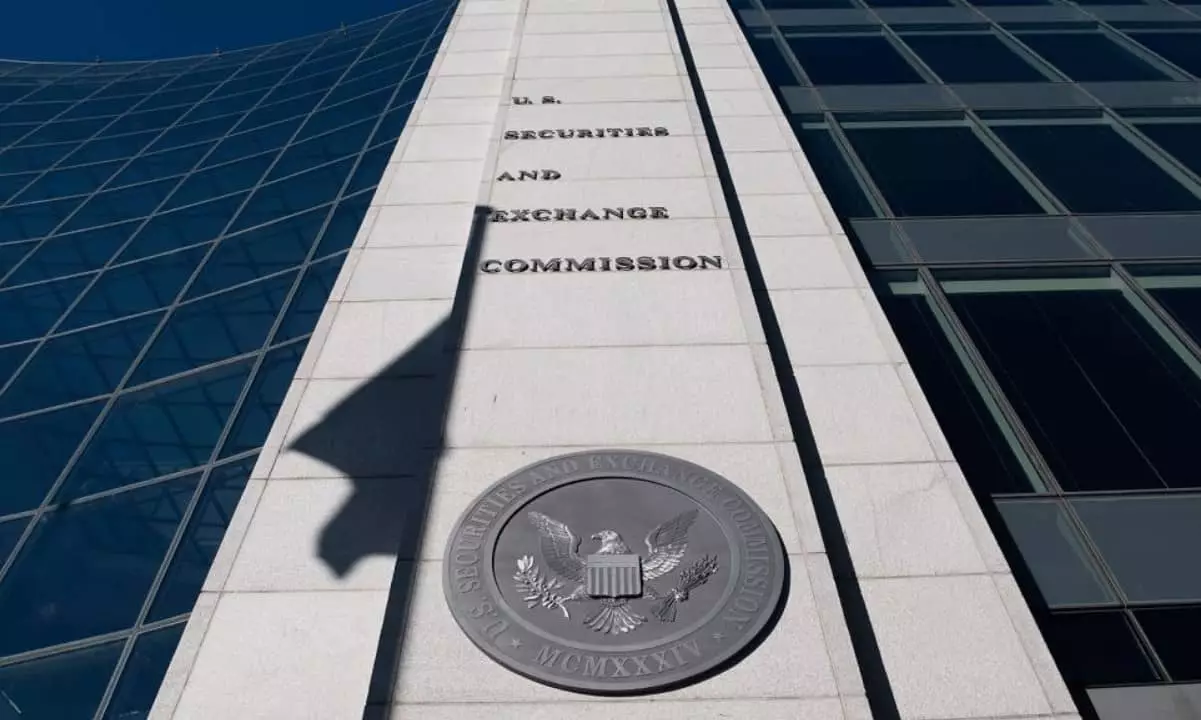The Securities and Exchange Commission (SEC) recently found itself in the eye of a political storm, driven by a faction of Republican lawmakers spearheaded by Rep. Patrick McHenry and Sen. Cynthia Lummis. Their pointed criticisms of the SEC’s Staff Accounting Bulletin No. 121 (SAB 121) have raised significant concerns regarding its implications for the cryptocurrency industry and the broader financial landscape. This article dissects the lawmakers’ arguments, explores the intricacies of SAB 121, and discusses the paramount need for regulatory consistency in a rapidly evolving sector.
The essence of the controversy lies in SAB 121, which mandates that custodians of digital assets treat their holdings according to standards that significantly deviate from traditional accounting practices. The SEC’s guidance requires such custodians to acknowledge liabilities on their balance sheets that correlate with the fair market value of cryptocurrencies they hold. Critics argue that this requirement not only complicates accounting procedures but also presents an inaccurate portrayal of custodians’ financial positions. By creating an accounting framework that may not reflect the unique challenges faced by crypto holdings, SAB 121 could potentially put consumer interests at risk as it obscures the real economic obligations of custodians.
Furthermore, the lawmakers emphasize that the SEC adopted this guidance without the requisite consultation with pertinent regulatory bodies or adherence to formal rulemaking procedures. This oversight is crucial, as it raises questions about the legitimacy and transparency of the SEC’s actions. The absence of a clear regulatory process fuels claims that the SEC has acted unilaterally, potentially complicating matters for entities engaged in digital asset custody.
In their communication to SEC Chair Gary Gensler, the legislators called for the rescission of SAB 121. They argue that such an action falls well within the SEC’s authority and is supported by precedents for revising staff accounting bulletins. The letter underscores a significant point: the Government Accountability Office (GAO) has classified SAB 121 as a “rule,” consequently maintaining it should have undergone the formal notice and comment period outlined in the Administrative Procedure Act (APA). By sidestepping this procedural necessity, the SEC has come under fire for potentially undermining foundational principles of regulatory oversight.
The lawmakers also referenced private consultations between SEC staff and select financial institutions, an issue that has attracted scrutiny for fostering an environment of ambiguity. Notably, exemptions from reporting requirements have been selectively granted to certain institutions, sparking concerns about the transparency and fairness of the regulatory landscape. This selective treatment raises broader questions about whether regulatory bodies are truly serving the public interest or if they are inadvertently enabling a few favored entities at the expense of equal treatment for all market participants.
One of the institutions that has notably benefitted from the SEC’s seemingly arbitrary regulatory leniency is BNY Mellon. This bank has been identified as one of the first to receive an exemption from SAB 121 during a broader effort to establish a foothold in the cryptocurrency market. Reports indicate that BNY Mellon’s desire to navigate the crypto custody landscape was met with varying levels of regulatory accommodation. The firm encountered difficulties with SAB 121, yet the SEC’s apparent willingness to provide an exemption has raised significant alarms among critics who argue this approach prioritizes specific players while leaving others at a disadvantage.
The discrepancies in treatment raise important ethical and operational questions in the financial sector. Why should a regulatory body like the SEC have the authority to distinguish between institutions when applying compliance requirements? This question taps into fundamental democratic principles, including fairness and equal access to regulatory protections. The lawmakers’ insistence on relevance to transparency, investor protection, and fair competition can’t be overstated.
As the debate surrounding SAB 121 unfolds, it becomes increasingly evident that the SEC must reevaluate its approach to crypto custody regulation. The call from Republican lawmakers to rescind SAB 121 reflects a broader demand for regulatory clarity that protects consumers while fostering innovation within the cryptocurrency space. Ensuring that all players are subjected to the same standards can bolster confidence in the emerging marketplace and ultimately encourage wider participation.
For consumers, the implications of regulatory confusion could be severe, potentially leading to misinformation and mismanaged expectations regarding the safety of their digital assets. As the digital world becomes more intertwined with traditional finance, the need for robust, clear, and equitable regulations becomes critical not only for industry participants but also for the investors they seek to serve.
The ongoing scrutiny of the SEC’s practices surrounding SAB 121 is a necessary dialogue that can forge a path towards a more transparent, fair, and accountable regulatory environment, crucial for the future of crypto-assets in the American financial system.

